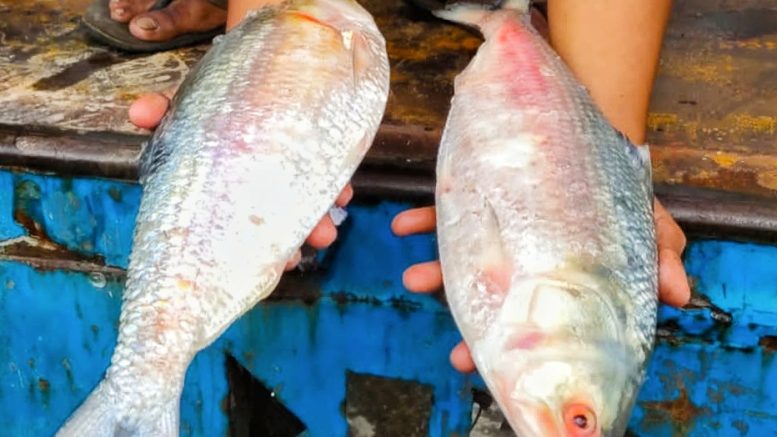Kolkata, September 5: Hilsa lovers in Bengal are set to be disappointed this festive season, as the prized “Padmar Ilish” (Hilsa from the Padma River) will not be reaching the Kolkata market. The Bangladesh government has announced that it will suspend Hilsa exports this year to meet domestic demand.
For years, Bangladesh has sent shipments of Hilsa as a goodwill gesture during the Durga Puja season, much to the delight of fish lovers in Bengal. However, the Ministry of Fisheries and Livestock in Dhaka on Tuesday confirmed that this tradition will be halted in 2024, as part of a strategy to keep the fish affordable for Bangladeshi consumers.
This decision is expected to significantly impact the price of Hilsa in Bengal, especially during the puja season. Hilsa from Myanmar, entering the market through unofficial channels, is likely to be costlier.
Bangladeshi Hilsa, especially the famed ‘Padmar Ilish,’ is renowned for its exceptional taste. This migratory fish typically moves from the sea to freshwater estuaries to lay eggs, with the Padma River serving as a prime breeding ground. Heavy rainfall, which reduces water salinity, is believed to enhance the flavor of the fish, making it highly sought after.
According to reports from Bangladeshi media, Farida Akhter, an advisor to the Ministry of Fisheries and Livestock, confirmed during a meeting with the Fisheries and Livestock Journalists Forum (FLJF) on Tuesday that no Hilsa exports to India will take place this year.
Akhter emphasized that the export ban is aimed at controlling domestic prices and ensuring Hilsa remains accessible to lower-income households in Bangladesh. “No Hilsa will be exported to India for Durga Puja this year,” she stated, as reported by local media outlets.
The interim government in Bangladesh has faced increasing domestic pressure to halt Hilsa exports, particularly from those who argue that the country’s iconic fish has become too expensive for its people. The anti-India lobby also contributed to this decision, pushing for a policy that ensures Hilsa remains within the country.
The news has dampened spirits in West Bengal, where Hilsa from Bangladesh is eagerly awaited during Durga Puja. “This decision is quite unexpected. Every year, we prepare for the festive season by ensuring a steady supply of Hilsa from the Padma River. This year, however, will be different,” said a Hilsa importer at the Petrapole landport.
The political unrest in Bangladesh has already raised concerns about the supply of Hilsa to Bengal this year. However, many traders had hoped that the interim government would continue the tradition. “Farida Akhter’s announcement has left us disappointed,” the importer added.
Bangladesh first halted Hilsa exports in 2012 to meet domestic demand and prevent overfishing of smaller-sized fish. However, in recent years, the Bangladesh government, led by former Prime Minister Sheikh Hasina, allowed Hilsa to be exported to India as a goodwill gesture ahead of Durga Puja. Last year, Bangladesh exported nearly 3,950 metric tons of Hilsa to India.
This year, however, the government has decided to reserve the entire stock for domestic consumption. Akhter also vowed to crack down on any illegal exports and ensure that Hilsa remains affordable for the country’s low-income population.
The absence of Bangladeshi Hilsa is likely to jolt Bengal’s fish traders, who now have to rely on Hilsa sourced from Myanmar, Odisha, and, potentially, illegal channels. Currently, Hilsa weighing over 1 kg from Bangladesh is sold in the market at around ₹2,000 to ₹2,200 per kg.
A member of the Fish Importer’s Association in Kolkata noted, “Hilsa from Myanmar and Odisha is already 30% more expensive than last year. Prices are expected to rise further due to the unavailability of Bangladeshi Hilsa.”
As a result, the market could see an influx of smaller Hilsa, weighing between 200-500 grams, caught from the Bay of Bengal, offering a less premium alternative for consumers this year.

